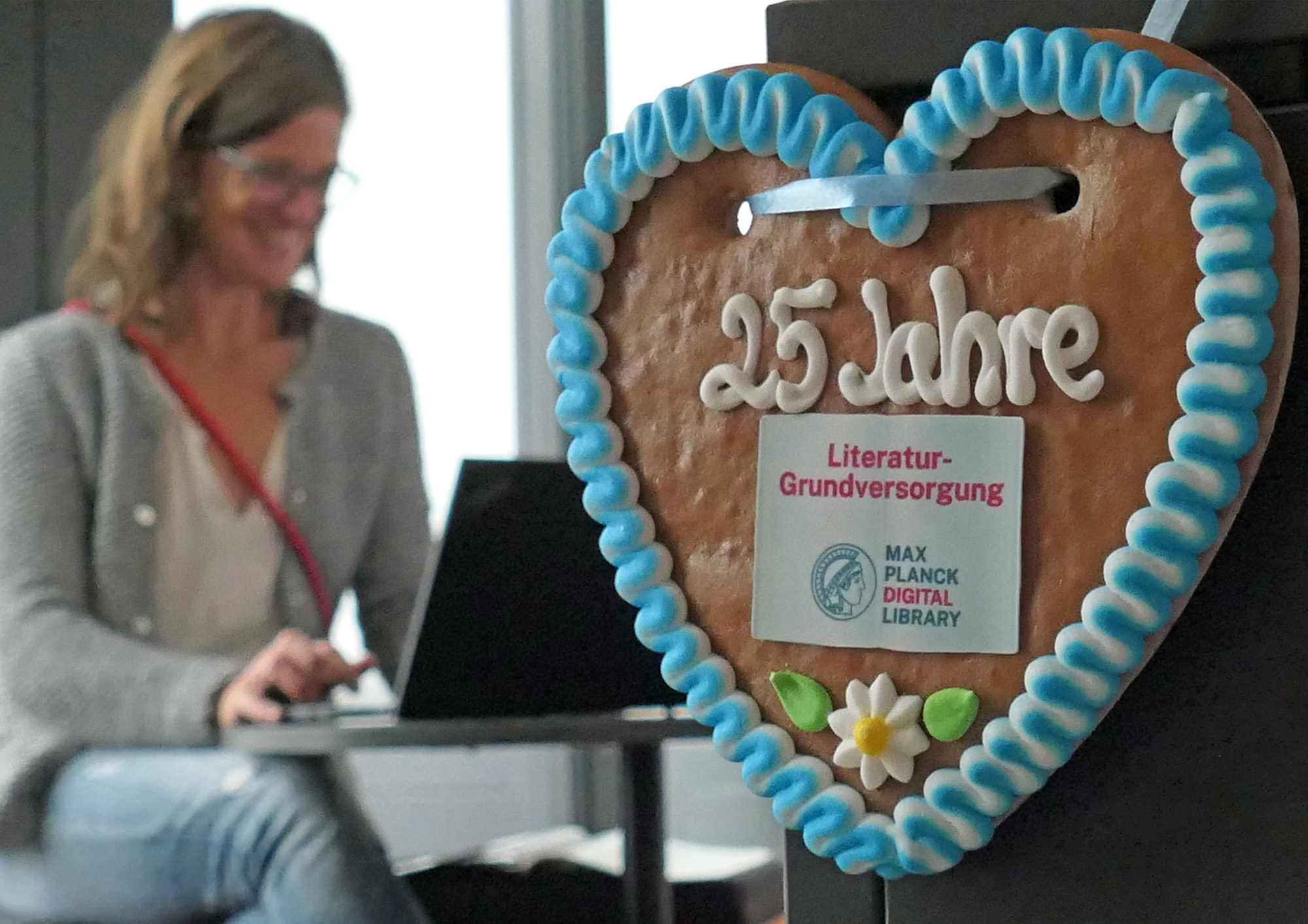A tale of service excellence, breaking paywalls and global leadership:
MPG’s Scientific Information Provision celebrates 25 years of supporting research
 The Max Planck Society is thrilled to mark the 25th anniversary of its Scientific Information Provision ("Literatur-Grundversorgung"), the core service provided by the Max Planck Digital Library that gives our researchers near-universal access to the literature they need to advance their work, while ensuring their results reach a wide audience.
The Max Planck Society is thrilled to mark the 25th anniversary of its Scientific Information Provision ("Literatur-Grundversorgung"), the core service provided by the Max Planck Digital Library that gives our researchers near-universal access to the literature they need to advance their work, while ensuring their results reach a wide audience.
Imagine coming home after a long day, flipping a switch, and instantly having light. You likely don’t think about all the infrastructure behind it—the work that goes into making something so basic and necessary available at your fingertips. For researchers, access to knowledge is just as vital. If you’ve ever been blocked by a paywall when trying to access a research article or textbook, you’ll understand how essential easy access to scientific works can be.
Twenty-five years ago, at the onset of the digital age, the Max Planck Society saw the potential of a centralized infrastructure to deliver universal information services for all of the institutes in an efficient and cost-effective way that, in close collaboration with the local libraries, could give the best possible support to our researchers. This visionary idea was the origin of what we call the Scientific Information Provision (or “Literatur-Grundversorgung”, in German)—a strategic service aimed at ensuring that all our scientists have access to the literature they need to thrive. It transformed the way we work, with an impact that has reached far beyond the walls of our institutes.
What began as an innovative concept has grown into one of the world’s leading research libraries. Today, the Max Planck Digital Library, which upon its creation became responsible for the management and development of the provision, handles more than 200 licenses that ensure seamless access to over 17,000 peer-reviewed journals and 900,000 e-books. This success is thanks to a devoted team that understands the needs of our researchers and librarians and works closely with service providers to deliver the tools and support they need, as well as the Max Planck institutes, who dedicated a portion of their budgets to launch this initiative.
 But the significance of the Scientific Information Provision extends beyond mere convenience. It reflects a larger mission: not just to access existing knowledge, but to amplify the research produced by the Max Planck Society and make it accessible to as many people as possible. This vision aligns with the goals of the Berlin Declaration on Open Access, of which the Max Planck Society was a key signatory and advocate. Through the global push for open scholarship, libraries like ours have become not just custodians of information but champions of global knowledge-sharing, ensuring that research is freely available and highly visible.
But the significance of the Scientific Information Provision extends beyond mere convenience. It reflects a larger mission: not just to access existing knowledge, but to amplify the research produced by the Max Planck Society and make it accessible to as many people as possible. This vision aligns with the goals of the Berlin Declaration on Open Access, of which the Max Planck Society was a key signatory and advocate. Through the global push for open scholarship, libraries like ours have become not just custodians of information but champions of global knowledge-sharing, ensuring that research is freely available and highly visible.
Achieving universal access to scientific knowledge requires global alignment and cooperation. The Max Planck Society has been a leader in this effort, with MPDL taking on an important position that has influenced and inspired peers around the world in the common goal of open scholarship. In Germany, we have been key contributors to national open access agreements (the groundbreaking DEAL agreements). And through its coordination of the global initiatives OA2020 and ESAC, the MPDL has shaped the evolution of scholarly publishing, creating strategic and practical frameworks to make open access a reality, and earning recognition for its significant impact in fostering a better world.
As we celebrate this 25th anniversary, we reflect with pride on all we've accomplished for our researchers and the wider academic community. Just as the infrastructure behind a light switch makes life easier without us even thinking about it, our work has quietly empowered research and discovery. We look ahead, more committed than ever to leading the charge toward open scholarship and embracing the challenges that will continue to power a brighter, more accessible future for science.
If you have any questions or feedback about the MPG Scientific Information Provision, we’d love to hear from you! Feel free to reach out to us at











